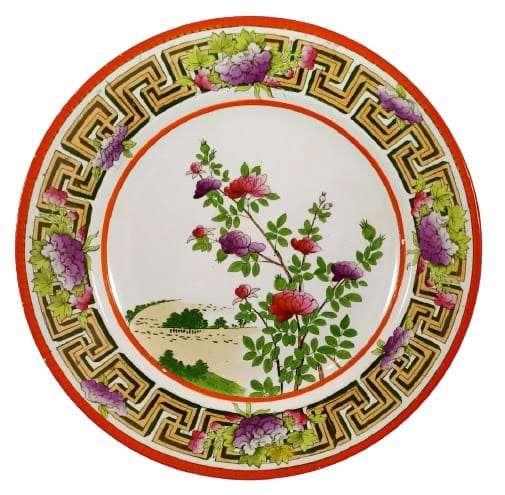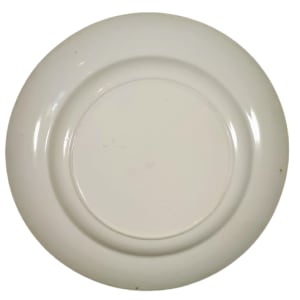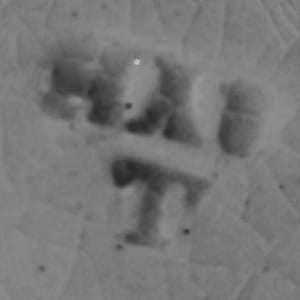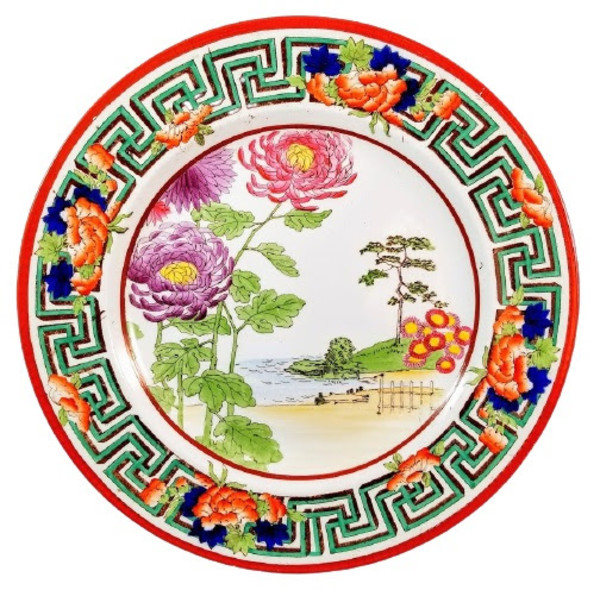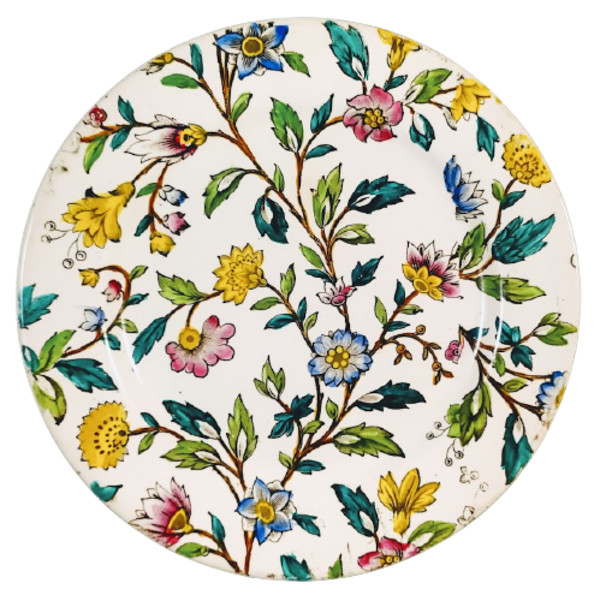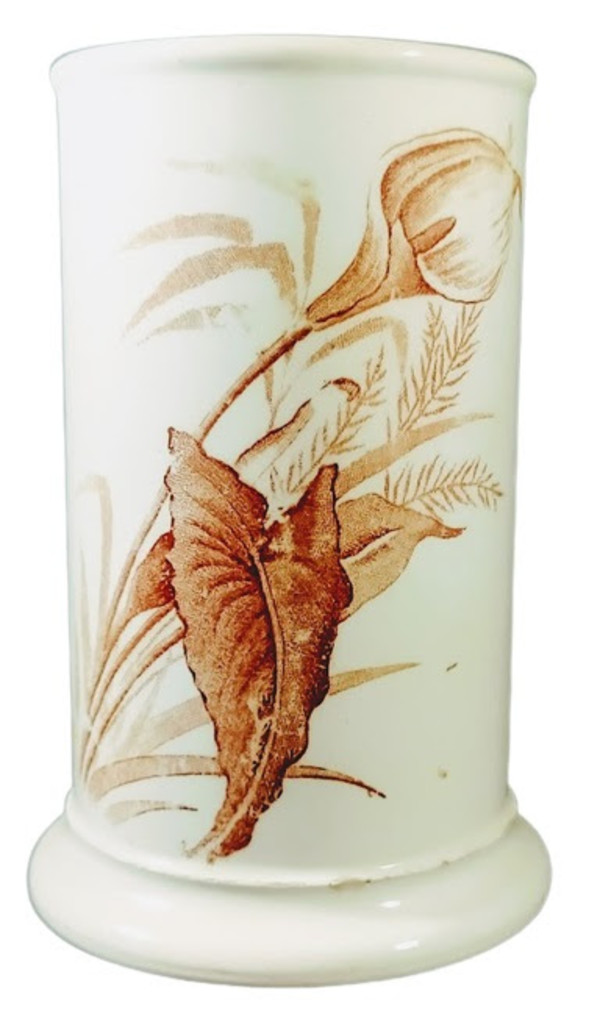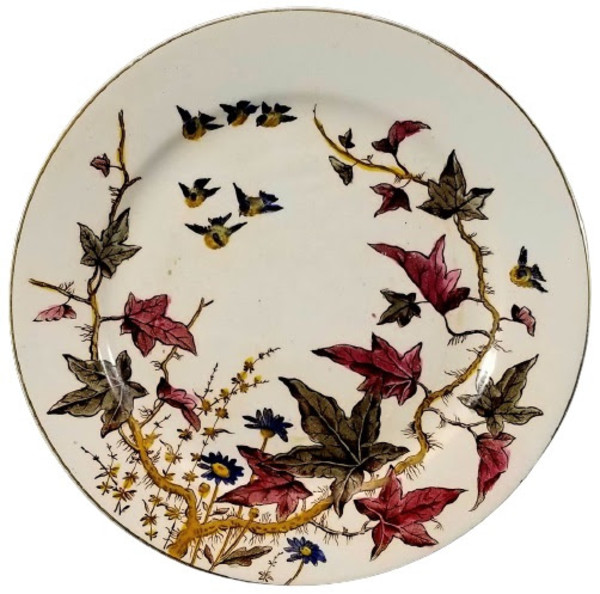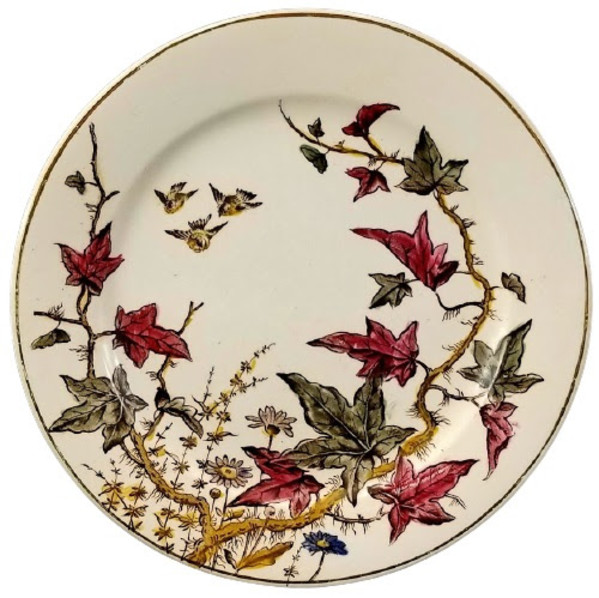- Josiah Wedgwood
- Unnamed (Japanese Landscape with Flowers), 1879
- Earthenware
- 10.25 x 10.25 in (26.04 x 26.04 cm)
-
Not For Sale
Plate, 10.25 inches diameter. Black transfer with polychrome clobbering. Impressed maker's mark for Josiah Wedgwood. The "P" below the factory name indicates pearlware. The three-letter date cipher indicates a date of 1879. This pattern features branches of blooming roses in the immediate foreground with a grassy field bordered by trees in the distance. The wide border consists of interlocking swastikas overlaid at intervals by clusters of peonies.
Josiah Wedgwood was born in Burslem, Staffordshire, on July 12, 1730, into a family with a long tradition as potters. At the age of nine, after the death of his father, he worked in his family's pottery. In 1759 he set up his own pottery works in Burslem. There he produced a highly durable cream-colored earthenware that so pleased Queen Charlotte that in 1762 she appointed him royal supplier of dinnerware. From the public sale of Queen's Ware, as it came to be known, Wedgwood was able, in 1768, to build near Stoke-on-Trent a village, which he named Etruria, and a second factory equipped with tools and ovens of his own design. At first only ornamental pottery was made in Etruria, but by 1773 Wedgwood had concentrated all his production facilities there. During his long career Wedgwood developed revolutionary ceramic materials, notably basalt and jasperware. After Wedgwood's death in Etruria on January 3, 1795, his descendants carried on the business, which still produces many of his designs.
- Subject Matter: Aesthetic (Japonesque)
- Collections: Aesthetic Transferware, Josiah Wedgwood
